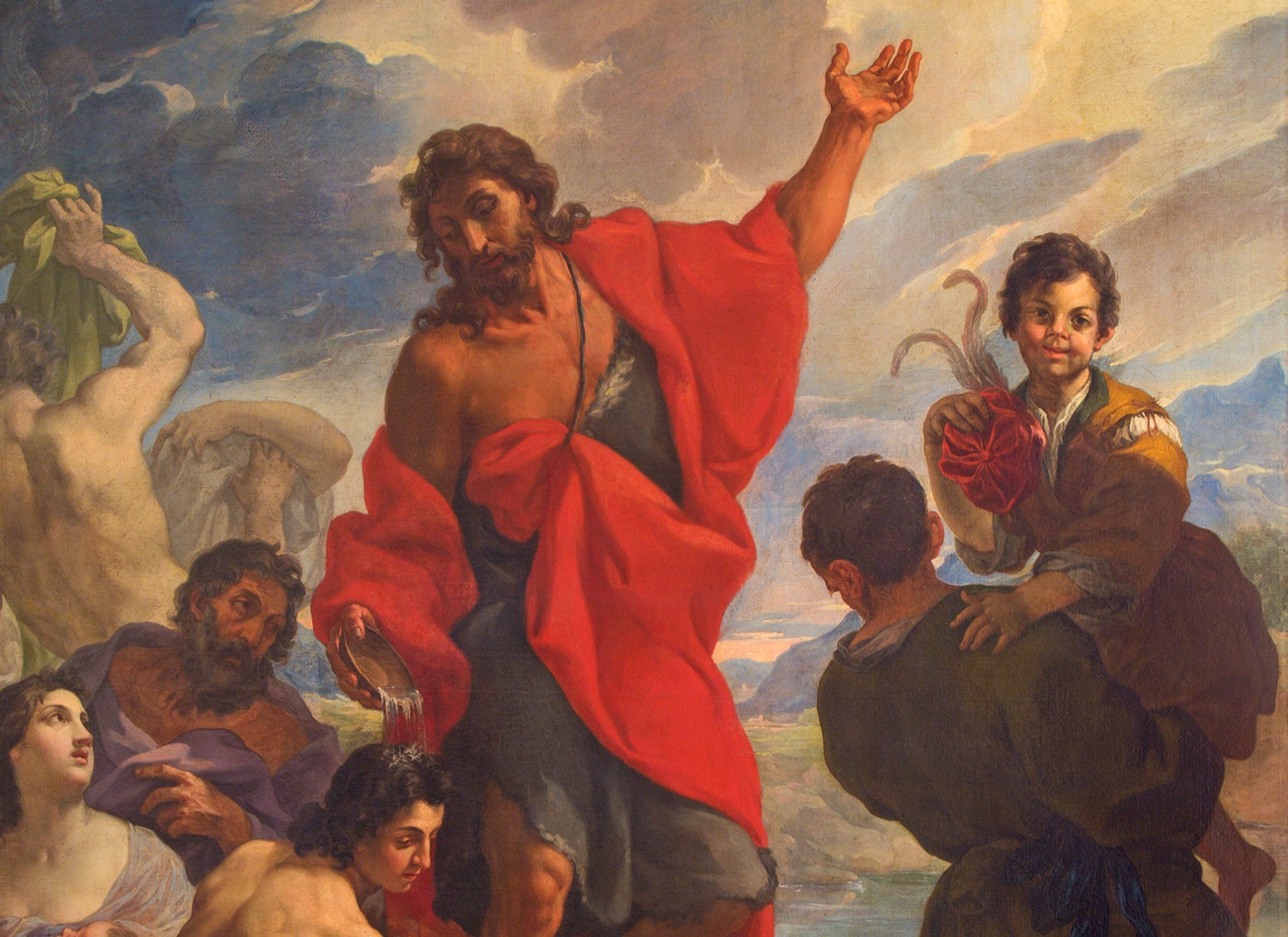The mystery of Christ’s love is prophesied by John the Baptist. He is the forerunner of Christ’s total self-gift. From the womb of his mother, Elizabeth, to his own death at the hands of Herod, John prepares the way of Christ. Alongside Mary, whom John greets from his mother’s womb, John’s life provides for fruitful Advent contemplation.
In the liturgical calendar, we celebrate John’s birth on June 24, six months before Christmas. John is the only saint, alongside Mary, whose nativity is commemorated with a liturgical solemnity. This signifies the importance of his witness, for he enters into the liturgical year at various points (including his beheading and now during Advent) to accompany us on our way toward Christ, illuminating our steps.
But, in Scripture, where we hear of John’s famous “womb leap,” we next hear of John as living in the desert. This is because the horizons of the desert are the horizons of God’s mercy. Indeed, the desert could be likened to a tomb. It is a place where life is difficult, empty and harsh. As such, though, it is also a place where we come to learn of our dependence on God. God alone gives us life. In his great mercy, even God entered into the tomb, into the desert of death, bringing life there. And love. John went into the desert to seek God in prayer, and to ask for the spiritual sustenance he needed to prepare God’s way. This he began to do by preaching about Christ, and by calling us all to repentance.
| December 10 – Second Sunday of Advent |
|---|
|
Is 40:1-5, 9-11 Ps 85:9-10-11-12, 13-14 2 Pt 3:8-14 |
Around the age of 30, John began to prepare God’s way by baptizing the people — great crowds of them! — in the Jordan River. This is why we call him John the Baptist. Perhaps we can imagine a scene in which John is down in the water with the people; people who have come to him because they are sad, sorrowful, repentant of their sins. John accompanies them, desiring their repentance and forgiveness. The river is a place of washing, of being made clean. And so John accompanies all these crowds of people, going down with them into the depths of their sorrows just as he enters with them into the waters that will wash them clean.
How great is God’s mercy
The river and the desert are surprisingly similar. They can both be a place of death. And of life. Thus God’s horizons are broadened for us. How great is his mercy!? John tells the crowds at the River Jordan that one mightier than I is coming after me. This one, Christ, will transform our fundamental situation of death into life, by going into the desert, into the waters of the Jordan, and finally into his literal tomb.
During Advent, though, we are still liturgically awaiting Christ’s birth. And we do so with John the Baptist, in the desert, and in the river — in that is, the tomb of sin. We recognize our situation, prepare our hearts for repentance, and hope in the mighty One whom we know is coming. We explore the horizons of God’s mercy with great expectation and anticipation of their ever-broadening expanses.
And thus, there is one more point to consider about John the Baptist. John’s holiness was a holiness of preparation. He grew in holiness simply by preparing for the Lord, waiting even in the womb for Christ’s forgiving and joy-inducing presence. John’s death, too, prepared us for the depths and lengths of God’s love, suffering a cruel death in prison. May John the Baptist’s holiness be a “way” for us this Advent — a way to contemplate the wide horizons of God’s mercy so that our hearts are prepared for his great and merciful birth.





